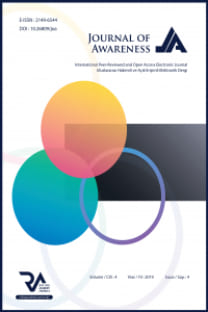BUILDING THE CITY (VILLAGE) OF THE FUTURE WITH SCHOOL, YOUNG CHILDREN AND FAMILIES
In this paper, we want to address the issue of the relationship between social space, education methods and institutions that carry out education today and project the future of the society: human, social, economic and cultural. The inclusion of infants and children in education in our day in the Korça region, Albania, has attracted the attention of the University and local municipal institutions, in order to form them in accordance with the best educational programs and perspectives used today. Over the last years in Albania, pre-university education such as university campuses has been overwhelmed by political changes in the country, but also by new visions driven by both the outside and the emerging needs of the country. Albania has a set of well-developed laws for covering sectoral policies and delivery of services to all children (0 to 18 years). However, a suitable environment for early childhood development has not yet been established. Basically, early childhood education, care and development are a proven and very important investment in national wellbeing. Investing in quality early-learning programs is one of the most effective ways to improve children’s success in school, to increase incomes and to reduce costs to society. In Albania there is a wide range of early childhood development services, including childcare, pre-school education and programs for vulnerable children. Early childhood development is a multidimensional process. To meet the diverse needs of children during the first years of life, government coordination is indispensable both horizontally in different sectors, and vertically from local to national levels. We will try to present the conditions and qualities of buildings and facilities of the century 21's, along with trends toward standards of new Early Childhood school, to offer the knowledge required by implementing them new standards. The theoretical part analyses some important information child care centers, function-related, space and safety, decoration, comfort, materials, the relationship between educators and children and many other factors. The programs and curricula that take place today at our University aim to build an education with contemporary standards, in cooperation with local administrations and organized institutions that care for infants and children. This cooperation has created examples of good practices in the Early Childhood School of our region.
Keywords:
early childhood education, inclusion, city-village best practices,
___
- ALBANIA, 2014, 2015, Development in Early childhood. World Bank Report
- CRETELLA, CH. and RUSSO, A., 2009, Corpi e soggetti, CLUEB, Bologna, ISBN: 9788849132397
- RECALCATI, M, 2015, Le mani della madre, Feltrinelli, ISBN: 9788807172908
- NIKAJ, I., 2013, Albanian Social and Philosophical Thinking of `30s-Neoalbanianism, Author House, Bloomington, IN 47403, ISBN 978-1-4772-8183-3.
- STEVEN_BARNETT, W, 2007, Preschool Education Studies: A Bibliography organized by Research Strengths. NIEER.
- ISSN: 2149-6544
- Başlangıç: 2016
- Yayıncı: Rating Academy
